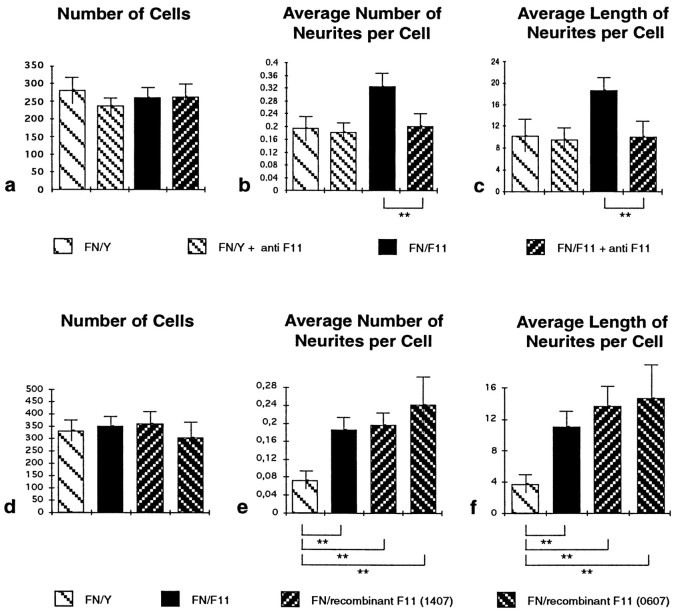Fig. 5.
F11-induced enhancement of neurite outgrowth can be inhibited by F11-specific antibodies and can also be observed if recombinant F11 is analyzed. Retinal cells were cultured on an FN–IgY mixture and on an FN–F11 mixture in the presence or absence of polyclonal F11-specific antibodies. Cultures were evaluated, and data are presented as outlined in the legend of Figure 2. The number of substrate-bound cells was indistinguishable on both substrates and was not influenced by the application of the antibodies (a). On the FN–IgY substratum the antibodies did not interfere with the average number of neurites per cell (b) and the average length of neurites per cell (c). However, the antibody neutralized the outgrowth-promoting effect mediated by F11 contained in the FN–F11 substratum (b, c). In another set of experiments, the outgrowth-promoting effect of soluble recombinant F11, expressed in eukaryotic cells, was evaluated. Two different preparations of recombinant F11 were found to enhance neurite outgrowth to a similar extent as F11 isolated from embryonic chick brain (d–f). Data from one representative experiment of at least four independent experiments are depicted. **Statistical significance of the difference (Mann–Whitney U test,p < 0.001).

